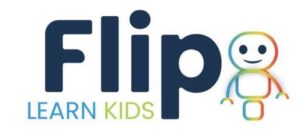When families are deeply involved in their children’s learning, student academic success often follows. But what does that look like in action?
Research has consistently shown that home-school partnerships lead to higher grades, test scores, attendance and graduation rates, said Karen Mapp, a senior lecturer on education at the Harvard Graduate School of Education. Mapp spoke Tuesday during the U.S. Department of Education’s first online panel discussion in its Family Engagement Learning Series.
“Family engagement is not a new concept,” Mapp said. “It is an essential ingredient to the success of our students in our schools, but we still are battling a little bit to try to get people to accept this and realize this.”
The Education Department’s series was launched in partnership with the Carnegie Corporation of New York and the Overdeck Family Foundation “to boost family engagement and lift parent voices,” the department said in a statement. The online series comes several months after the Education Department disbanded its newly formed National Parents and Families Engagement Council. The council’s dissolution followed the filing of a lawsuit by a group of conservative activists who claimed the effort lacked “balanced” perspectives.
The department said it disagreed with the lawsuit’s claims and would continue to connect with families nationwide by holding town halls and distributing resources.
Improving literacy
A parent’s relationship with their child is “the most underutilized natural resource in education,” said Alejandro Gibes de Gac, CEO and founder of the nonprofit Springboard Collaborative, during the virtual session. The collaborative provides tools to districts coaching parents and teachers on how to collaborate to improve students’ literacy.
The first step is to build trust between parents and teachers, Gibes de Gac said. Then, both parties need to understand the student’s current reading level to know how to move forward.
Parents and teachers may, for instance, want to help a student achieve a specific goal, like moving up a reading level within five to 10 weeks. During that time, students would need to practice reading at home for at least 15 minutes per day and also get tutoring or classroom help, Gibes de Gac said. Progress should then be measured by parents and teachers after that time frame, he said, and any met goals celebrated to help develop habits of future success.
“Those small wins lead to big wins down the road,” he said.
Springboard Collaborative partners with over 60 Title I schools nationwide, and their weekly family workshops average 88% attendance, according to Gibes de Gac. Students in the program show average reading growth by 2.3 to 9.5 months in early literacy skills within five to 10 weeks, he said.
“This is a huge amount of instructional time that would be difficult and frankly expensive to replicate through teachers or tutors,” Gibes de Gac said. “Only when parents and teachers work together, can school communities unlock their true potential.”
Taking on math
Reading is not the only discipline where family engagement practices need to be linked with learning, educators say. According to Mapp, it’s important to dispel the myth that certain subjects — particularly math — are too hard for families to engage in.
With the right support, parents are interested in helping their children learn at home, Mapp said. Studies have shown that when families take part in targeted math workshops and join in follow-up learning activities at home, students’ math performance improves, Mapp said.
Parent-teacher home visits are tied to better math outcomes, too, she said.
“This engagement isn’t just good for our students, it’s good for our educators,” Mapp said. “We find that when our educators engage with families, a lot of the deficit-based mindsets they have about families begin to melt away. They start to really appreciate multi-cultural awareness and know how to do those strategies and practices.”
When schools have strong family engagement strategies, morale is higher among staff, too, Mapp said. On top of that, she said, “schools have better reputations in the community when they’re engaged with families.”






Leave a Reply